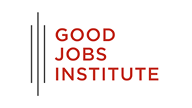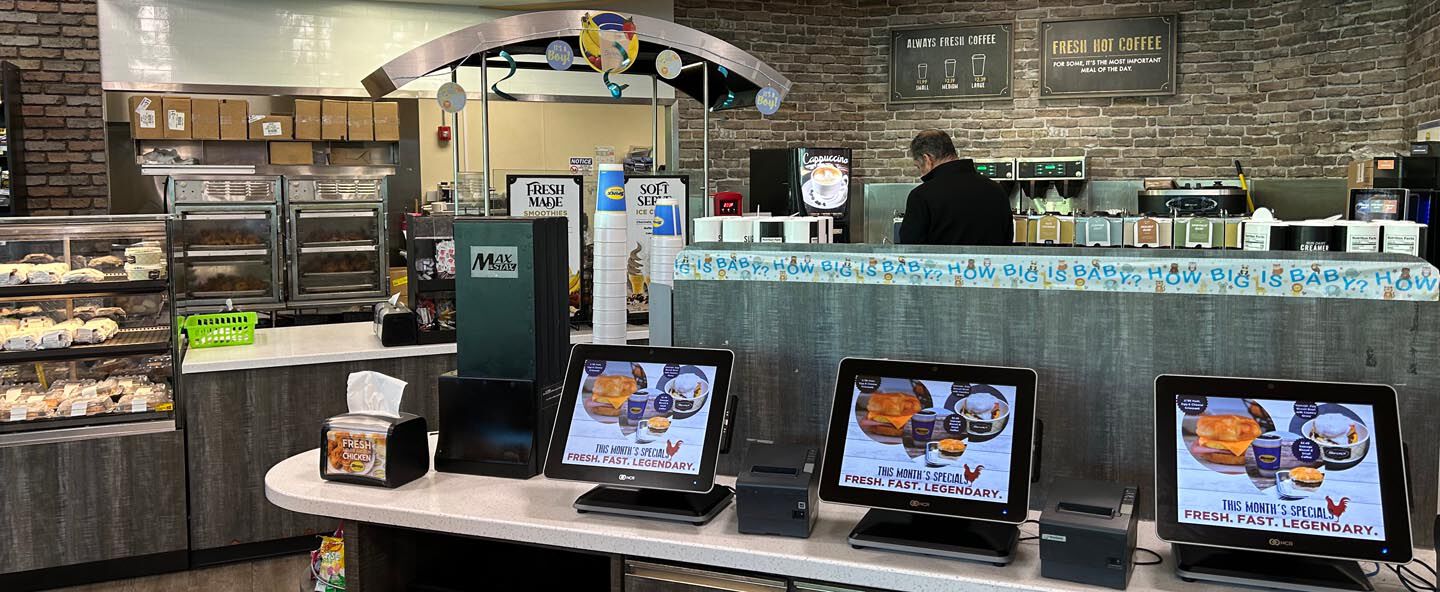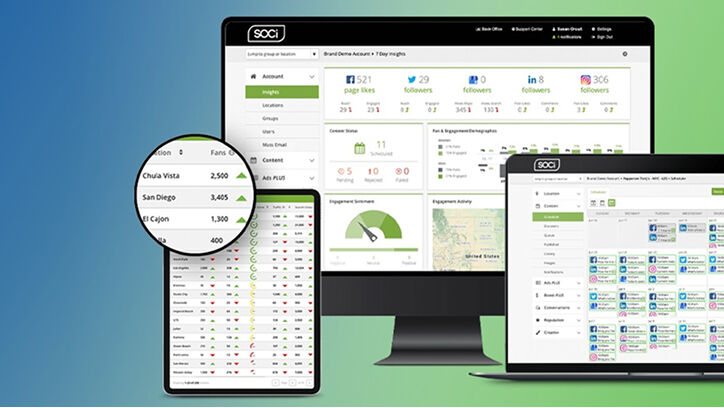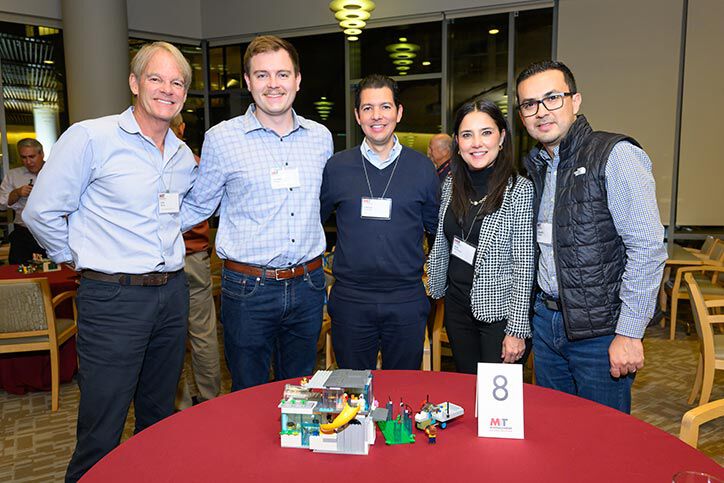The Client: NACS
Convenience stores are the nucleus of the countless neighborhoods and communities they serve. With more than 162 million customer transactions taking place every day, U.S. convenience stores serve the equivalent of one-half of the U.S. population each day, according to Lori Buss Stillman, Vice President, Research and Education at NACS.
The industry is both resilient and ever-changing, adapting to the needs of the convenience-minded shopper. For example, before cable and streaming services, convenience stores collectively rented more movies than the now-defunct major movie rental chains. Today, VCR rentals are negligible, if they even exist at all. This is just one example of the adaptive nature of convenience. Whether it’s sunglasses in Mexico City, umbrellas in Boston, or a fresh, hot made-to-order pizza in Shanghai, convenience stores offer the products and services that shoppers seek in the moment.
Today’s convenience stores are a key resource for the customers they serve. Dr. Zeynep Ton, Professor of the Practice, Operations Management at MIT Sloan School of Management, explains: “In many rural American communities, for example, convenience stores are the closest place to purchase necessities like groceries, fuel, and meals,” she points out, adding that “beyond the impact on their customers, convenience stores employ over 2.5 million people in the U.S., and when these are good, living wage jobs, where people can work with dignity and shine in front of customers, that leads to better outcomes for so many families and communities.”
Meaningful and Rewarding Work
Ton is the co-founder of the Good Jobs Institute, a non-profit with a mission to help companies thrive by creating good jobs and redefining what it means to run a successful business. She first connected with the NACS senior leadership, including Dr. Henry Armour, President and CEO of NACS, in the context of teaching in the NACS Innovation Leadership Program, an annual weeklong executive education engagement offered by the association to its members and designed and delivered at MIT Sloan. In 2020, NACS partnered with the Good Jobs Institute to offer its members an opportunity to integrate the Good Jobs Strategy into their business. The strategy is a system that combines investment in employees with operational choices that increase productivity and motivation to create engaged employees, happy customers, and better performance. Several organizations across the U.S. have raised their hands.
“As our industry has grown dramatically over the past two decades in both magnitude and complexity, our members have recognized the need to increase their organizations’ business acumen across the basic foundations of management, leadership, finance, marketing, and innovation.”


Building Better Frontline Businesses
A non-profit consultancy with the mission to help companies thrive by creating good jobs
Flipping the Formula on Innovation
Geared toward senior executives who are interested and able to drive innovation in their organizations, the program focuses on the areas of customer experience, operations, supply chain, and people engagement and culture change. During their time on campus, participants learn from MIT faculty and experts by immersing in topics such as strategy, design thinking, digitalization, machine learning, ecosystems, neuroscience and organizational psychology. In addition, the program offers an opportunity for participants to connect with and learn from peers from around the world, as well as engage with the MIT ecosystem of innovative companies. (This ecosystem, if measured as a country, would represent the world’s tenth-largest GPD.)
The MIT approach to custom executive education is multi-faceted, providing a comprehensive and immersive opportunity to empower individual participants and develop skills to strengthen teams. The experiences and knowledge not only deliver tremendous returns on investment for the participant organizations but often unlock capabilities and solutions that resonate beyond the industry to deliver measurable impact around the globe.
For NACS, the goals for the program are strategic, pointed out Court Chilton, Senior Lecturer, Work and Organization Studies at MIT Sloan and the Faculty Director of the program. “For the industry, it is vital to increase the amount, the rate, and the rigor of innovation across the sector. NACS wanted to empower retailers with the tools, the skills, and the mindset to innovate.” Delivering on this goal helps the association build stronger relationships with its members and, in turn, helps retailers empower their employees to drive meaningful change in their companies and the industry as a whole.
Real-World Impact
Becky Schall is the Director of Retail Accounting Systems at Circle K, a global brand operating in more than 20 countries. The program she attended has transformed her approach to work. "I used to limit my thinking to what the system allowed," she shared.
"Now, my perspective has shifted. I focus on finding the best solutions to achieve our goals and solve problems, thinking more innovatively about how we work, exploring possibilities, and working towards them instead." Schall's teams provide financial accounting support to Circle K's 9,799 stores across North America. The insights Schall gained from MIT have enabled her organization to think more broadly, developing new processes and increasing efficiencies. For example, the teams have reduced the time required for the quality assurance certification process for accounting by 50 percent, allowing them to deliver services faster.
In 2020, Stillman, the VP of Research at NACS, joined as a participant. The pandemic forced MIT to deliver all learning online. Stillman’s experience proved that digital delivery can work. The project her team designed during the program became the foundation for a robust digital marketing solution branded THRIVRTM. This industry-wide offer enables NACS members to improve their marketing strategy by optimizing their search marketing and location visibility.
Sue Vandersall is the Vice President, Executive Succession Planning and Talent Development at Alimentation Couche-Tard, the parent company of Circle K. She sends multiple participants to the program every year, including senior managers and directors from different areas of the business. “We generally look for people who can impact the way we work,” she said. “They can be from anywhere in our organization, but in roles where they are looking at how we can do things better or differently or just think more innovatively about how we are working.” Moreover, the program offers a unique opportunity for people to meet and get to know each other in the classroom and build connections across their global company that will serve them and the organization for years to come.
Strategic Education Partner
When asked about the reasons why NACS keeps coming back to MIT Sloan and has included us as part of the association’s strategy, Armour pointed to the intellectual curiosity and collaborative spirit of everyone involved in the program—from faculty to staff. “MIT Sloan is driven by discovery and characterized by exemplary customer service and engagement. Its global respect is more than well deserved,” he said.
While intellectual curiosity can be found in many universities, the willingness to truly work together with organizations to deliver the most relevant, impactful, and immediately applicable learning to participants is something that sets MIT apart. “A collaborative relationship is key to a successful executive education experience,” said Ann Marie Maxwell, Program Director at MIT Sloan Executive Education. “Trusting each other with information is incredibly important, because the more we know about the problems you are facing, the more we can do for your organization.”
Armour pointed out how the program benefits the association. “The impact for NACS is creating a program with unique and compelling value for our most progressive members from around the world that, with the rest of our offer, glues them to NACS...and it does.”
Stillman believes that the program has made the conversations around embracing change and innovation easier. “It's created a common language,” she said. “And not just for the people who've gone through the program. As participants take their new learning back and institutionalize new concepts across their teams, it starts to create a groundswell of permission to think differently about what convenience truly can be. The program enhances the role that NACS can play in creating value for our members and—even more exciting and important—the role that our members can play in serving their employees, their customers and their communities.”










